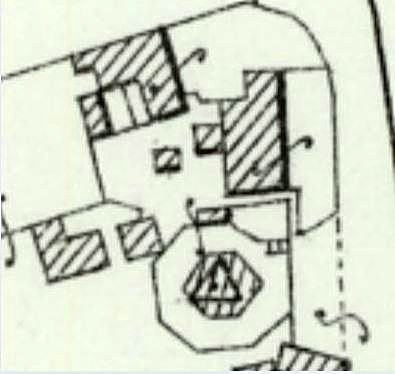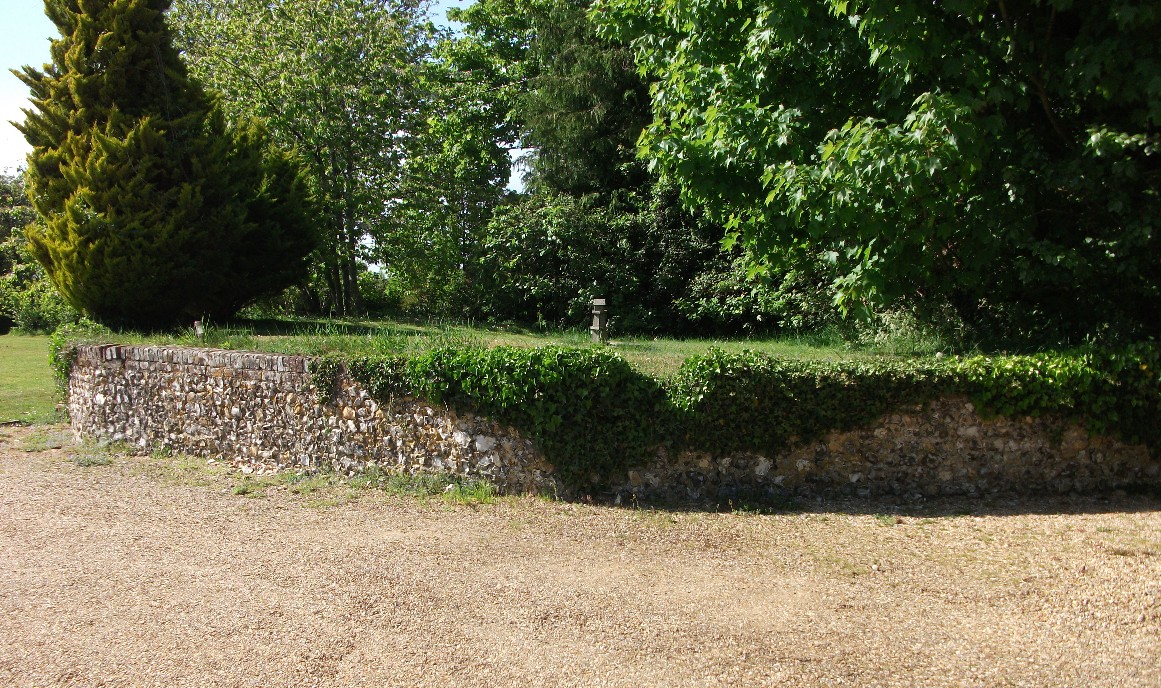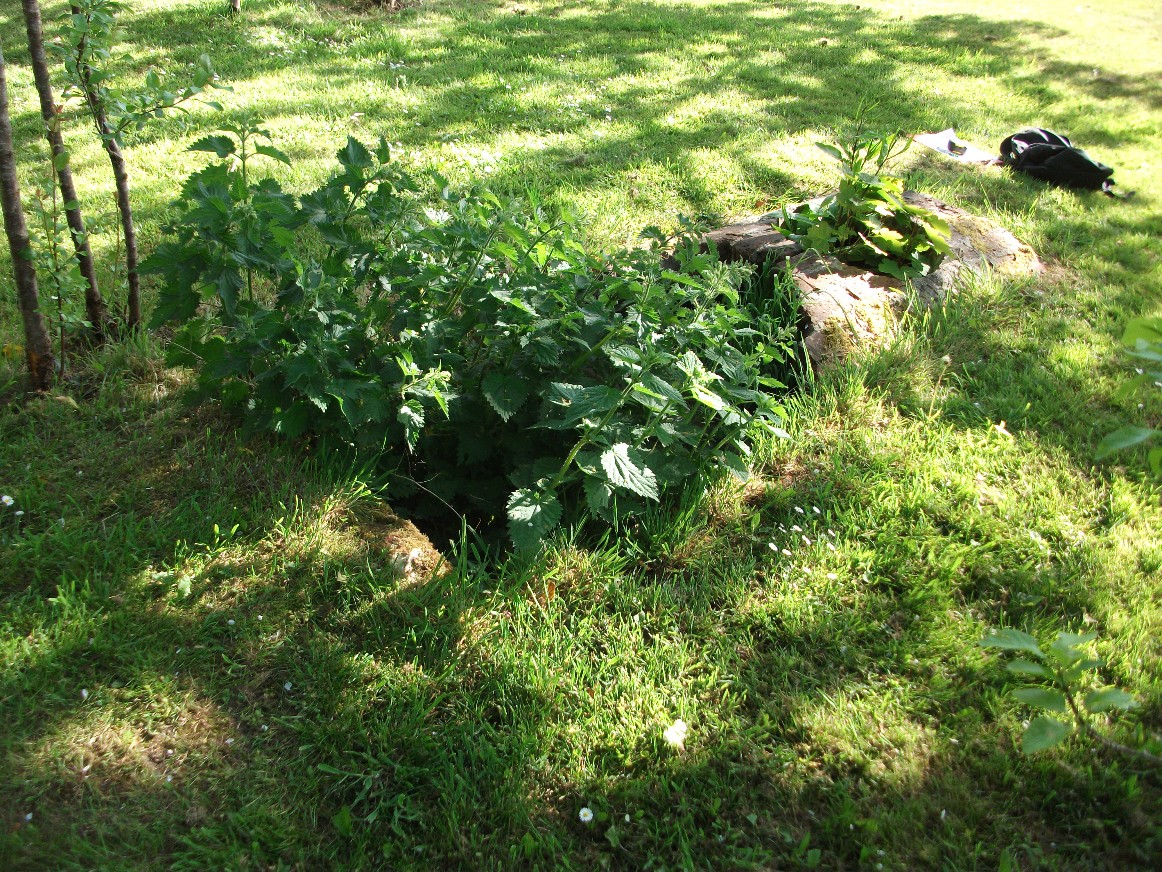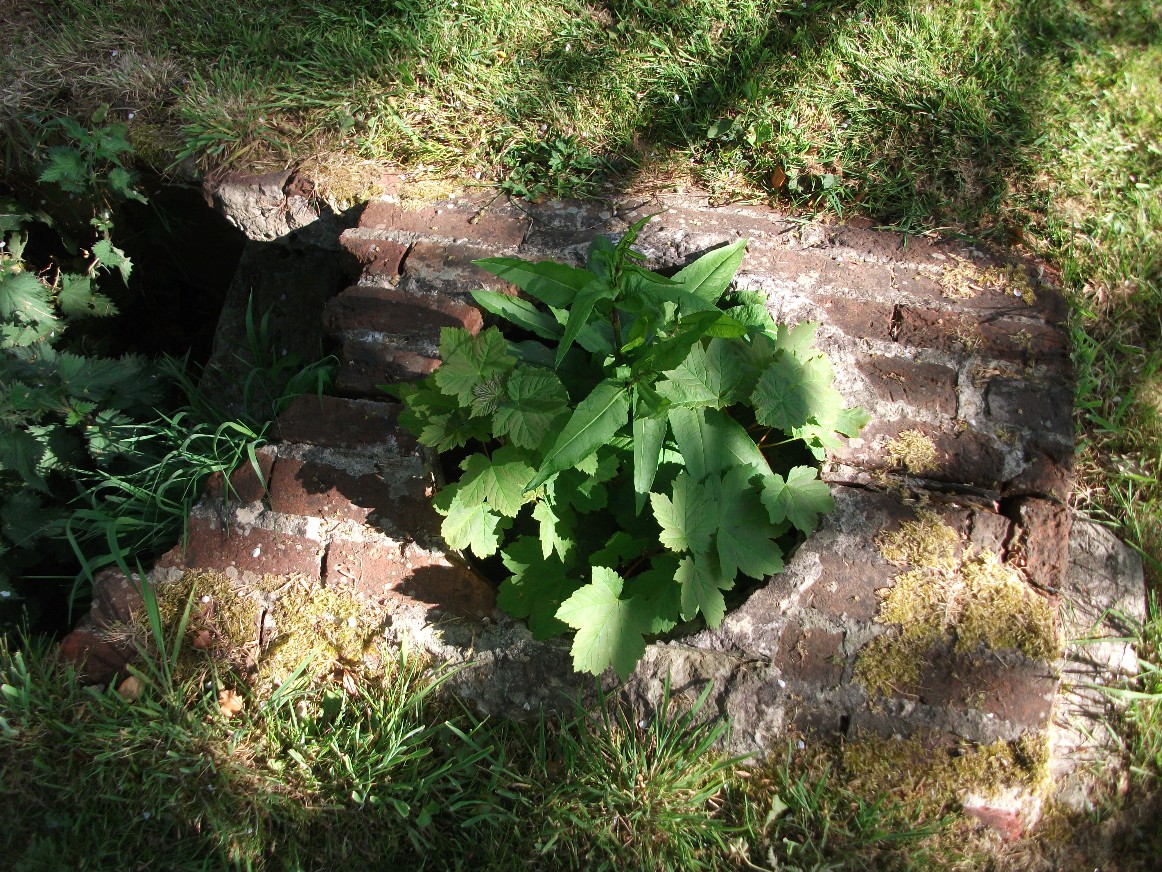|
   |
|
Page 6 |
Newsletter 138 Autumn 2022 © Hampshire Mills Group |
|
Denmead Windmill
Russell
Jones
|
|
On
this year’s National Mills Weekend in May, I decided
to visit Hampshire's least photographed windmill
remains, the former smock mill at Denmead (at SU
672142, and labelled Denmead Mill on the current OS
map). I had first photographed it in 1981, and
decided it was time for another visit! It does show
on some Google Streetview images, so I knew it was
still there, and since my last visit is now in the
garden of a house.
I
walked up the drive and knocked on the door, and
luckily the owner was in. She knew a little bit of
history about the mill but wasn't aware of the new
research published in the recent book of Hampshire
windmills (Windmills of Hampshire and the Isle of
Wight, Guy Blythman), which found a listing for a
miller here in 1907, and states that a previous
publication was incorrect in saying that the mill
was burnt down around 1896, when in fact those
accounts refer to the nearby Hambledon mill. There
are no known photographs of the mill.
|
 |
 |
|
As
can be seen from an old map image (above left), the
remaining base (above right) is more or less
octagonal and the hexagonal mill stood on top. The
map also shows some other structures which are now
gone, apart from a mystery brick structure that
remains at ground level. The square box on its own
in the centre of the map seems to be in the same
place.
|
|
The remaining visible brick structure is about 3ft
long and 30in wide. The top brickwork is slightly
domed and there is a circular hole about 1ft in
diameter.
Below ground level in front of the circular hole was
a concrete block which was probably about 2ft deep.
I did wonder if the block was for mounting a flue
that protruded through the circular hole.
|

|
|
There is probably more buried beneath the grass, and
the vegetation made the remains difficult to
photograph. The owner would be very interested to
know what this was, so if anyone has any ideas, do
contact the editor so she can pass on the
information to the owners. Perhaps some of our
Industrial Archaeology colleagues might like to have
a look. I am sure the owners would welcome some
pre-arranged on site investigations. |
 |
| |
|
|
